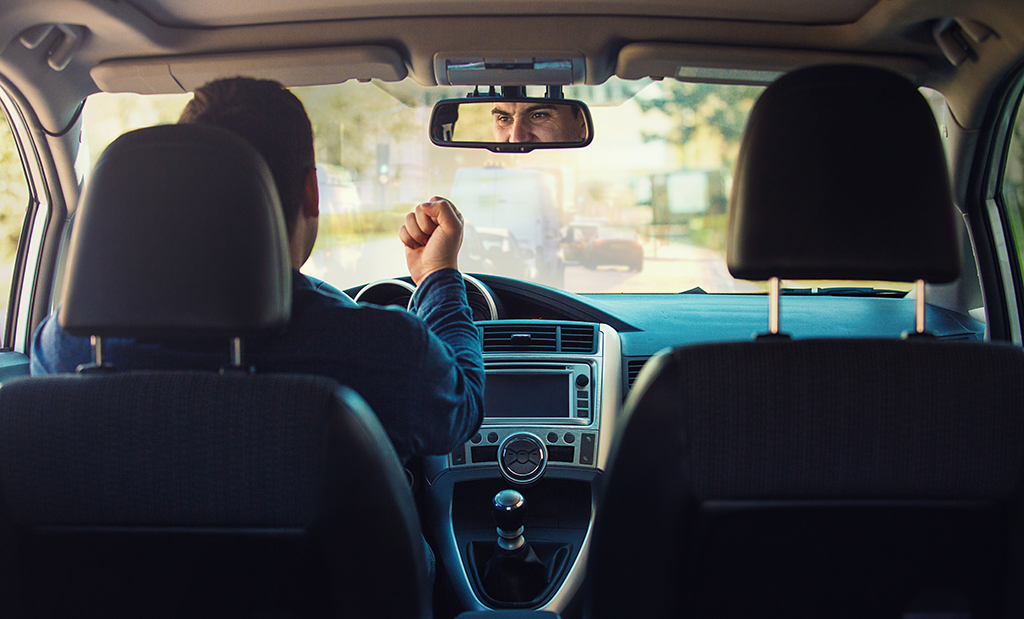By Faten Omar
KUWAIT: Hours spent in traffic may harm a person's mental health and might cause road rage. When a driver's level of stress, anxiety or hostility rises, the individual may use their vehicle in an aggressive fashion that places their own life in danger and society at risk. Most people in Kuwait may suffer from road rage, according to consultant psychologist Abdullah Al-Hamadi. Overcrowding of roads and highways is one reason people resort to road rage, where human nature reacts defensively when we feel that our personal space has been invaded.
Hamadi said people should pay attention to each breath as it goes in and out to maintain a normal breathing rhythm, as it relaxes the body, which is also simple enough to do behind the wheel, advising people to avoid peak traffic times.
Since Sunday, heavy traffic jams have been reported as schools reopened to full capacity. "Facing school-related traffic congestion, overcrowding and blocking of streets at or near schools can be stressful, and we cannot deny that even calm people can turn to anger to express how frustrated they are," Huda Adel, a 29-year-old bank employee, told Kuwait Times.
Adel said the timing of her work made it hard to avoid traffic jams in the mornings. "Efforts must be made by the government. The most obvious cause of traffic congestion around schools is vehicles, and the biggest source of those vehicles is parents dropping off and picking up their children. So the number of children taken to school in private vehicles must be reduced. This is the best environmentally-friendly solution," she said.
Abdullah Khattab, a 31-year-old teacher, said obligating schools to provide buses is the best solution, not only for traffic jams, but also the environment. "All parents will approve of this idea. Having one bus with 40 students is better than having 40 vehicles on the road. Another solution, which is not suitable for summer though, is to increase physical activity among children and adults. We see many children and adults going to school and work in developed countries by bike. Why shouldn't we adopt this idea?" he asked.
MP Abdullah Fahhad called in a tweet for the implementation of the flexible hours system and a change in some school hours in order to resolve the traffic crisis, saying the traffic crisis needs urgent and sustainable solutions related to the structure of Kuwait's roads. Drivers who are more likely to experience road rage take more risks, have more hostile and aggressive thoughts, and have more anxiety and impulsiveness.
Mohammad Al-Ansari, 20, a university student, told Kuwait Times that Kuwaitis have some anger management issues. He said Kuwaitis must acquire and practice calming skills for their own wellbeing and to make their life better and easier, no matter how hard life is. "Let's not forget practicing a sport that will reduce anger and frustration. In the end, being impatient will reflect on our lives - in order to not be in trouble, the best way is taking everything easy."
Essa Al-Ali, 31, an employee, said it's hard to find a person with patience these days. "Lack of patience and composure is prevalent among modern human societies, where the primary reason is lifestyle. A healthy and balanced lifestyle should be adopted; otherwise, impatience is the last drop of rage in the glass before it spills over," he said.
Fatma Al-Enzi, 20, a university student, told Kuwait Times that whenever she is on the road, she asks herself, "Why the rush?" She also discovered that impatient and angry people amid crowds make patient people like herself more annoyed and tense. "We all know how to drive, but not all of us can control our tension, and this causes accidents and trouble among people in traffic jams. People should take control of themselves. Why don't we learn to respect the road and the laws? These are all solutions to avoid problems, but we lack awareness. Solutions must be applied to avoid annoyance, tension and nervousness we experience daily. One must learn patience and control their emotions to avoid accidents and problems," she pointed out.
Khaled Al-Obaidan, 25, said some ministries reject or delay paperwork deliberately, which leads to impatience and frustration. "Government institutions are behind the attitude of many on the roads, because many will be asked to get another paper from home or somewhere else, so they go back and forth on the road again and again." He said many places are far from each other. "The distance causes the impatience. The ministries are far from each other and we have a limited time in which we can finish our work."
According to him, Kuwait also suffers from a lack of parking lots, so the individual has to waste time finding a spot after reaching their destination. "There are also many traffic lights. When I drive within the speed limit of 60 kph, I will stop at two stoplights, but when I speed up to 120 kph, I will stop at only one stoplight," Obaidan remarked.











